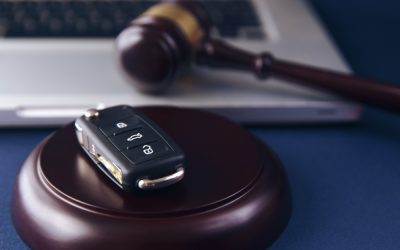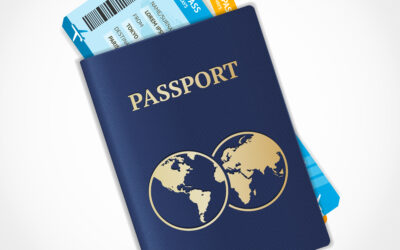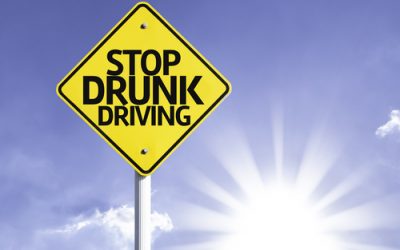
Yes, getting therapy after a DUI can be beneficial, especially for those looking to understand the underlying reasons for their actions. California mandates DUI school for those convicted of DUI or “wet” driving offenses, which typically includes education and counseling.
While some find the alcohol counseling helpful, others may feel it’s unnecessary for a one-time mistake. Either way, therapy after a DUI can offer valuable insights and support for moving forward.
If you’re unsure about the penalties you face or want guidance on how to approach your case, working with a Los Angeles DUI lawyer can help you make informed decisions and protect your rights.
Understanding California DUI School Requirements
California DUI School is required for certain driving offenses under California penal codes, mandated by the court or DMV. Offenses that may require DUI School include:
- Vehicle Code 23152(a): Driving under the influence
- Vehicle Code 23152(b): Driving with a BAC of .08% or higher
- Vehicle Code 23140: Underage DUI (BAC of .05% or higher)
- Vehicle Code 23103.5: “Wet reckless” driving
California DUI penalties require the program to be completed in person with state-licensed providers, although some now offer telehealth options. Completing DUI School entirely online is not permitted.
To enroll, you typically need a court order or a suspension notice from the California DMV. For more information, contact the Department of Health Care Service.
Counseling and Coursework During DUI School
California’s DUI Program combines both group counseling and educational sessions. The counseling typically takes place in a group setting, but there are also opportunities for individual one-on-one interviews.
The education part covers California DUI laws, substance abuse, and responsible drinking habits. This information is delivered through various formats, such as live lectures, videos, and group discussions.
While you’re not required to actively participate in the educational sessions or group counseling, active participation is expected during the individual interviews.
California DUI Classes Versus Substance Abuse Treatment
DUI classes and substance abuse counseling have different roles, though they often overlap. DUI classes are meant for those charged with DUI, focusing on the dangers, consequences, and legal implications of impaired driving.
Substance abuse counseling is broader and supports anyone facing addiction. It may include a variety of approaches:
- Support groups like Alcoholics Anonymous
- Cognitive Behavioral Therapy (CBT) to address harmful behaviors
- Family involvement to strengthen recovery efforts
While DUI classes concentrate on preventing future driving offenses, substance abuse counseling offers a deeper approach to overcoming addiction. Depending on the situation, both forms of support may be part of a person’s recovery journey.
Benefits of Individualized Therapy
Personalized therapy provides tailored support to address your unique experiences following a DUI. One-on-one sessions with a counselor help uncover the reasons behind the offense and develop healthier coping strategies.
This approach allows you to set specific goals and create a plan that meets your needs, boosting your motivation for change. It also offers a safe space to express your feelings, encouraging personal growth and confidence.
Beyond addressing the DUI, personalized therapy improves overall mental and emotional well-being. It equips you with tools to manage stress, handle triggers, and build a foundation for lasting recovery.
When Should You Go to Rehab?
If you’re considering rehab after a DUI and wondering how to move forward, start by asking yourself a few key questions:
- Has drinking negatively affected my life?
- Would my life improve if I stopped using alcohol or drugs?
- Can I imagine my life without alcohol?
- Am I able to quit on my own?
If you find it difficult to maintain sobriety and are looking for ways to rebuild after a DUI, it might be time to explore a substance abuse treatment program.
Consequences of Not Completing California’s Mandated DUI Program
Failing to complete a court-ordered DUI program is considered a probation violation. If you are removed from the program, you lose the ability to drive with a restricted license. Driving without a valid license during this time could lead to further penalties for violating DUI probation.
When you don’t attend DUI school as required, the program will notify the judge, who will typically issue a bench warrant for your arrest. After your arrest, a hearing will be scheduled to address the probation violation, which could result in additional jail or prison time.
Additionally, the DMV will revoke your restricted license and reinstate the original suspension or revocation of your driving privileges.
Finding a New Direction After a DUI
Taking a new direction after a DUI, particularly after jail time, can feel challenging, but it is possible. Treatment for alcohol addiction often includes therapies that help you understand the behaviors and factors that led to the DUI, allowing you to reflect on your past choices.
With guidance from a counselor, you can create a plan that is tailored to your needs. This new path might involve reassessing your social circle, finding new ways to spend your time, and building healthier habits for self-care.
Living free from the grips of alcohol may take time and patience, but with the right support, you can make small steps toward your goals and discover a path to recovery and a brighter future.
How Los Angeles DUI Attorney Can Help
If you have questions about the benefits of therapy after a DUI or want to better understand your legal options, speaking with a knowledgeable lawyer can provide clarity. Therapy can be an important step in addressing the issues that led to a DUI, and understanding the legal process is just as important.
Connecting with a Los Angeles DUI attorney can help you find the right support and guidance for your situation. We can answer your questions and connect you with an experienced lawyer who understands both the legal and personal challenges you may be facing.
Don’t hesitate to reach out and take the next step toward getting the help you need, whether it’s legal advice or exploring therapy options after a DUI.







